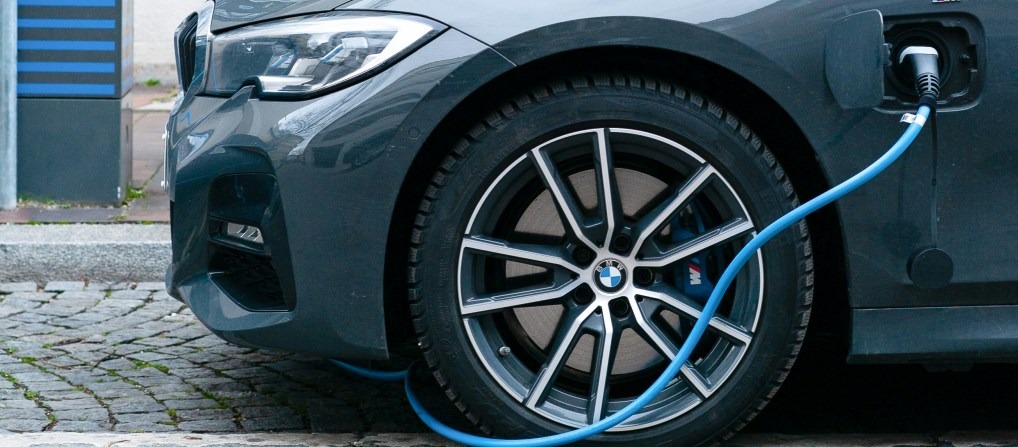
31 Mar What Are Common Electric Vehicle Maintenance & Auto Repairs?
 Just like conventional gas-powered vehicles, electric vehicles require routine maintenance to ensure all the components function properly. Regular inspections also identify potential issues before they escalate into expensive repairs. Following your factory-recommended servicing schedule can help prevent major breakdowns and extend the lifespan of your electric vehicle. What does routine maintenance for an EV look like? Well, routine maintenance for an electric vehicle involves proper EV battery management, tire rotation, and other services. Let’s delve into the particulars for a better understanding.
Just like conventional gas-powered vehicles, electric vehicles require routine maintenance to ensure all the components function properly. Regular inspections also identify potential issues before they escalate into expensive repairs. Following your factory-recommended servicing schedule can help prevent major breakdowns and extend the lifespan of your electric vehicle. What does routine maintenance for an EV look like? Well, routine maintenance for an electric vehicle involves proper EV battery management, tire rotation, and other services. Let’s delve into the particulars for a better understanding.
Do EVs Require Routine Maintenance?
Every vehicle requires routine maintenance, even electric vehicles. While the components may be a bit different, a good maintenance plan will keep your EV running like new. An electric vehicle requires service at least once a year or every 10,000 – 15,000 miles. Let’s review which components and systems in your electric vehicle need routine maintenance.
The EV Battery Management System (BMS)
The EV battery management system (BMS) is key for EV performance and battery life. It’s an electronic system that watches over the battery pack. It ensures your electric vehicle’s battery works well, stays safe, and lasts a long time. Here are the basics of what this system is and how it works.
EV Battery Cell Monitoring
Battery cell monitoring checks each battery cell’s voltage, current, and temperature. This process prevents battery damage from over or undercharging.
Battery Cooling System or Thermal Management
Your car EV battery cooling system is different than the cooling system in gas-powered vehicles. Thermal management uses special coolant for electric vehicles to control the battery pack’s temperature. It keeps it within an optimal operational range for performance, efficiency, and a longer life.
State of Charge Estimation
This part of the EV battery management system estimates how much charge the battery has left. Knowing the remaining battery charge helps the driver plan their route more effectively and offers peace of mind.
Battery Protection Monitoring
Protecting the battery pack from dangerous situations like over-current, over-voltage, and overheating is important. These monitors and sensors help prevent conditions that cause battery failures and fires.
Check Fluid Levels
Electric vehicles, like their gas-powered counterparts, use various automotive fluids. These fluid levels require monitoring to ensure they stay within specific ranges. Vehicle safety and performance can suffer when fluid levels are low.
- Brake fluid – A hydraulic fluid used in hydraulic brake and clutch applications.
- Coolant – A mixture of coolant and water regulates the internal component’s temperature.
- Grease – Reduces friction and wear to help increase the lifespan of components such as wheel bearings and door locks.
- Power Steering Fluid – Hydraulic fluid lubricates the power steering components to reduce friction and corrosion.
- Thermal Fluid – EV batteries generate a lot of heat. Thermal fluid acts like radiator coolant to cool them down.
- Transmission fluid – Lubricates gears and other components within the gearbox, drivetrain, and transmission system.
- Windshield washer fluid – This fluid cleans the windshield of debris.
Regenerative Braking System
Electric vehicles use a regenerative braking system that harnesses kinetic energy from braking and uses it to recharge the EV’s battery. Most electric vehicles require a brake inspection at least once a year or every 12,500 miles. Just like in gas-powered cars, the brake pads in electric vehicles wear down and require replacing. Plus, the other braking system components need periodic inspections to ensure they work correctly.
Tire Rotation
Most electric vehicles weigh more than traditional gas-powered vehicles in the same class due to the heavier battery packs found in EVs. A heavier car means your tires can wear out up to 20% faster than tires on combustion engine vehicles. Read your owner’s manual for the factory-recommended tire rotation schedule for your EV.
Software Updates
Ev manufacturer software updates supply new features, install safety improvements, and provide bug fixes for your EV. Routine software maintenance makes driving around town safer and often improves your electric vehicle’s range and efficiency.
Wheel Alignment & Balancing
Some electric vehicles use EV-specific tires. They typically last 20,000 to 40,000 miles with routine maintenance. Regularly scheduling wheel alignment and tire balancing will ensure your EV’s tires last longer, saving you the cost of replacing your tires prematurely due to uneven tire tread wear or blowouts.
Common Electric Vehicle Repairs
Knowing about common EV repairs helps you keep your vehicle in good condition, ensuring it consistently performs well and stays efficient. Creating a savings account for EV repairs can help you prepare for some of the more expensive replacement parts, like EV battery packs and tires. Those future expenses won’t be so alarming if you know what to plan for.
Diagnostic Inspection
Comprehensive testing of your EV’s electrical systems will identify issues and malfunctions that require service. If any warning lights illuminate your dashboard, schedule a diagnostic inspection immediately.
EV Battery Care
Most electric vehicles use specialized high-voltage batteries that require extra precautions to ensure safety during service. Additionally, components may block access to the EV battery, making replacing it more challenging than switching out a conventional car battery. Due to the high voltage involved, please note that servicing an electric vehicle’s battery pack is dangerous. Only a trained EV-certified technician should perform battery conditioning and replacements.
Battery Conditioning
EV battery reconditioning helps your EV’s battery last longer and work better. Your technician checks each cell, fixes any weak ones, and balances the entire battery system.
Battery Replacement
Over time, your EV’s battery capacity degrades, reducing range and efficiency. Once the battery’s life is exhausted and can no longer be reconditioned, it requires replacement. This repair involves significant skilled labor and is expensive. Still, it is necessary to ensure the longevity and reliability of your electric vehicle. Depending on your EV model, expect a battery replacement every ten years or so.
New Tires
Check each tire’s tread depth regularly to determine when to purchase new tires. Your service technician can help track your electric vehicle’s tire tread wear and advise on tire replacements.
Electric Vehicle Maintenance & Repairs
As enthusiasm for electric vehicles grows, it’s essential to have a reliable and trustworthy service provider like JJ’s Auto Care. We understand the unique requirements of these technologically advanced vehicles.
With our team of highly skilled technicians and state-of-the-art equipment, we provide exceptional service, ensuring that your electric vehicle runs smoothly and efficiently. From routine maintenance, such as EV battery management and tire rotation, to diagnostic inspections and repairs, we have the expertise to provide top-notch service.
Schedule An Electric Vehicle Service in Jacksonville, FL
At JJ’s Auto Care, we provide exceptional routine maintenance and repairs for your electric vehicle. Our highly skilled technicians are trained in electric vehicle technologies and use quality genuine parts to ensure optimal performance. Call us at (904) 721-6646 or visit our website to make an appointment.
We look forward to seeing you soon!

